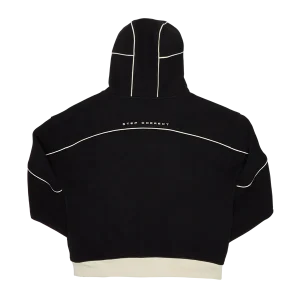In today’s world, security camera have become essential for enhancing safety and peace of mind, whether for a home, business, or public space. They offer a reliable method to monitor surroundings, deter potential threats, and even help solve crimes. This comprehensive guide will cover the importance of security cameras, the different types available, tips for installation, and the many benefits they provide.
The Importance of Security Cameras
1. Deterring Crime
One of the primary reasons people install security cameras is their effectiveness in deterring crime. Visible cameras discourage potential thieves or vandals, who are less likely to target properties under surveillance. The presence of cameras alone can act as a powerful deterrent, reducing the risk of break-ins and theft.
2. Providing Evidence
In the unfortunate event of a crime, security cameras can provide crucial evidence. High-quality footage can aid law enforcement in identifying perpetrators and understanding the details of an incident. This evidence is invaluable for solving crimes, making security cameras an essential component of any security strategy.
3. Remote Monitoring
Modern security cameras allow you to monitor your property from anywhere in the world. With a smartphone or computer, you can access live feeds, review recorded footage, and even receive alerts for suspicious activities. This level of accessibility offers peace of mind, especially for people who travel frequently or manage multiple properties.
Types of Security Cameras
1. Indoor vs. Outdoor Cameras
- Indoor Cameras: Designed for indoor environments, these cameras are often smaller and more discreet. They are ideal for monitoring hallways, entrances, and sensitive areas within a building.
- Outdoor Cameras: Built to withstand weather conditions, outdoor cameras are more durable and often come with features like weatherproofing and infrared night vision. They are typically used to monitor entrances, driveways, and perimeters.
2. Wired vs. Wireless Cameras
- Wired Cameras: These cameras are hardwired into the electrical system of a building. They offer reliable performance and constant power, making them suitable for locations where a stable connection is crucial.
- Wireless Cameras: Powered by batteries or solar panels, wireless cameras offer flexibility in placement. They are ideal for locations where wiring is difficult or for temporary setups.
3. Bullet vs. Dome Cameras
- Bullet Cameras: Known for their cylindrical shape, bullet cameras are often used for long-distance viewing. Their shape makes them easily recognizable, which can act as a deterrent.
- Dome Cameras: With a more compact, dome-like design, these cameras blend in more discreetly with the surroundings. Dome cameras are often used in public spaces due to their 360-degree coverage.
4. PTZ (Pan-Tilt-Zoom) Cameras
PTZ cameras offer flexibility by allowing remote control over the camera’s movement and zoom. This feature makes them ideal for large areas, such as parking lots or warehouse spaces, where you may need to cover multiple angles and distances.
5. Smart Cameras
Equipped with AI technology, smart cameras can distinguish between different types of movements, reducing the chances of false alarms. They can also integrate with smart home systems, allowing you to control them through devices like Amazon Alexa or Google Assistant.
Key Features to Look for in Security Cameras
1. High Resolution
A higher resolution camera will capture more detailed images, making it easier to identify individuals or objects in the footage. Aim for a minimum resolution of 1080p for clear, recognizable visuals.
2. Night Vision
Since many security incidents happen at night, cameras with night vision capabilities are essential. Infrared technology enables the camera to capture footage even in low-light conditions, enhancing security during nighttime hours.
3. Motion Detection
Motion detection alerts you when the camera detects movement, helping you respond to potential threats quickly. Advanced systems allow you to adjust the sensitivity or define specific zones where motion alerts are triggered, reducing false alarms.
4. Cloud and Local Storage Options
Choose a camera system that offers flexible storage options. Some cameras allow for both local storage (like SD cards) and cloud storage, so you can access footage remotely while having a backup on-site.
Tips for Effective Security Camera Installation
1. Cover Key Areas
Identify the most vulnerable areas around your property and position cameras to cover them. Key areas typically include entrances, exits, driveways, and any secluded areas where an intruder might attempt to gain access.
2. Place Cameras Out of Reach
To prevent tampering, install cameras at a height where they cannot be easily reached. A height of 8 to 10 feet is generally recommended, as it provides a good view while keeping the camera secure.
3. Avoid Direct Sunlight
Direct sunlight can create glare and wash out footage. Position outdoor cameras so they are shaded or use cameras with built-in glare reduction. Test different angles to find the optimal position for clear images.
4. Ensure Strong Wi-Fi Connectivity
For wireless cameras, strong Wi-Fi is essential for a stable connection. Position wireless cameras within range of your Wi-Fi router or use Wi-Fi extenders if necessary to ensure uninterrupted access to live feeds.
Benefits of Security Cameras for Homes and Businesses
1. Enhanced Safety for Family and Staff
Security cameras provide a safer environment for everyone on the property. At home, cameras help protect family members and offer peace of mind. In businesses, cameras improve safety by deterring workplace harassment and creating a safer work environment.
2. Reduced Insurance Premiums
Many insurance providers offer discounts to property owners who install security systems, including cameras. The presence of cameras reduces the risk of claims, which can translate into lower insurance premiums.
3. Improved Productivity in Businesses
For businesses, security cameras can be a valuable tool for monitoring productivity. They can help deter time theft, reduce unsanctioned breaks, and ensure employees follow company policies, contributing to a more efficient work environment.
4. Documenting Incidents and Resolving Disputes
Security cameras can be invaluable in documenting incidents. They provide a clear record of events, which can be helpful in resolving disputes or handling insurance claims. For example, if there’s an accident or incident on your property, recorded footage can provide critical details.
Common Misconceptions About Security Cameras
1. Cameras Infringe on Privacy
A common misconception is that security cameras infringe on privacy. While privacy concerns are valid, most modern security cameras are designed to monitor public or shared spaces rather than private areas. Properly positioning cameras can mitigate privacy concerns.
2. Security Cameras Are Expensive
While there are high-end security systems available, there are also budget-friendly options for homes and small businesses. Advances in technology have made security cameras more affordable, allowing more people to benefit from enhanced security.
3. Maintenance Is Difficult
Most security cameras require minimal maintenance. Regularly cleaning the lens and checking connections is usually sufficient. Additionally, many modern cameras offer self-monitoring capabilities, alerting users to potential issues.
Conclusion
Security cameras have become essential for safeguarding homes and businesses, providing numerous benefits from crime deterrence to evidence collection. By choosing the right type of camera, considering key features, and following best installation practices, you can create a robust security setup tailored to your needs. With advancements in technology, security cameras now offer remote access, smart alerts, and high-quality footage, making them a practical investment for enhanced safety and peace of mind.









